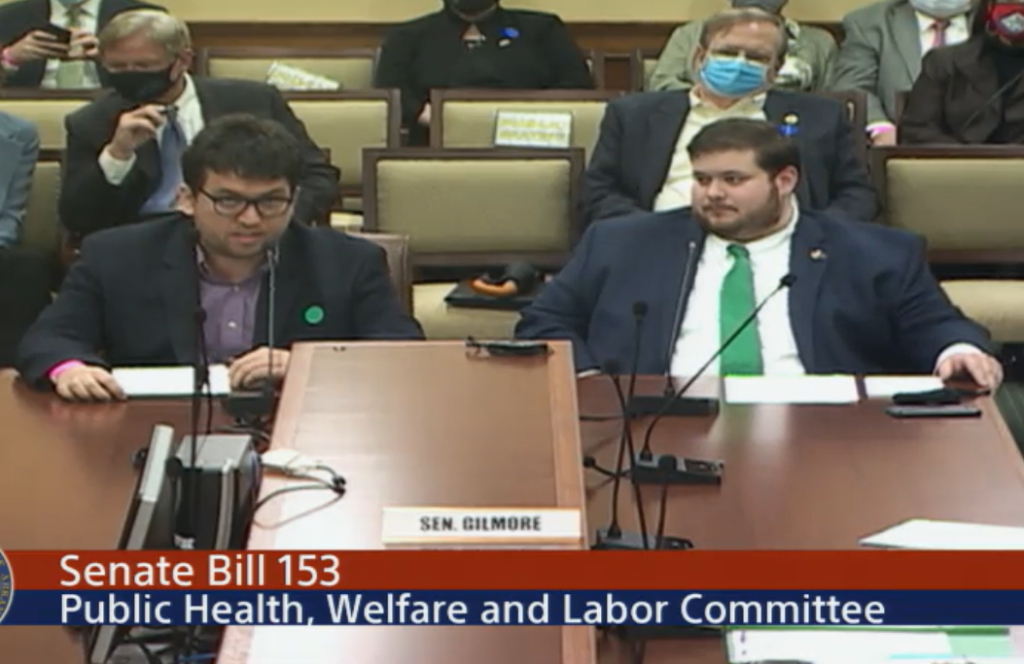By Caleb Taylor
Should Arkansas exempt low-income residents from initial licensing fees?
ACRE Economic Policy Analyst Alex Kanode testified on how occupational licensing in Arkansas can serve as a barrier to opportunity for low-income workers at a Senate Public Health, Welfare, and Labor committee meeting on March 17th.
Committee members were deliberating on whether to pass Senate Bill 153 sponsored by State Sen. Ben Gilmore R-Crossett and State Rep. David Ray R-Maumelle.
If passed into law, state licensing entities would be barred from requiring an initial fee for individuals who are seeking to receive a license in Arkansas if the applicant meets one of three requirements:
- is receiving assistance through the Arkansas Medicaid Program, the Supplemental Nutrition Assistance Program, the Special Supplemental Nutrition Program for Women, Infants, and Children, the Temporary Assistance for Needy Families Program, or the Lifeline Assistance Program
- was approved for unemployment within the last 12 months
- has an income that does not exceed two hundred percent (200%) of the federal poverty income guidelines
According to the Department of Health and Human Services, 200% of the federal poverty income guideline for a single individual in 2021 is $25,760.
The waiver for the initial fee does not include fees for a criminal background test, exam, and drug test.
Kanode said:
This bill helps remove one more hurdle between low-income Arkansans and re-entering the workforce or moving up the economic ladder. It’s a really good step towards helping Arkansans.”
The bill has passed out of the House and Senate Public Health, Welfare and Safety committees and the full Senate unanimously. It has yet to be considered by the full House. You can watch Kanode’s testimony here starting at 4:34:45.
You can find out more about our research on labor market regulation here.

